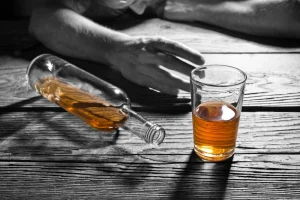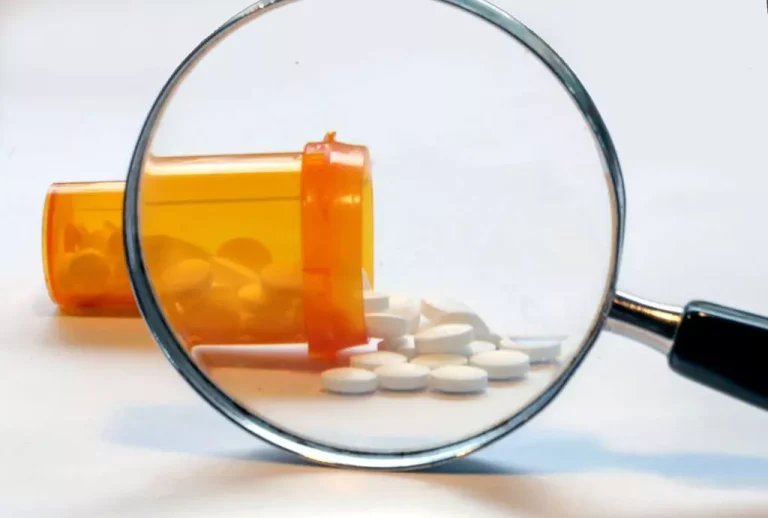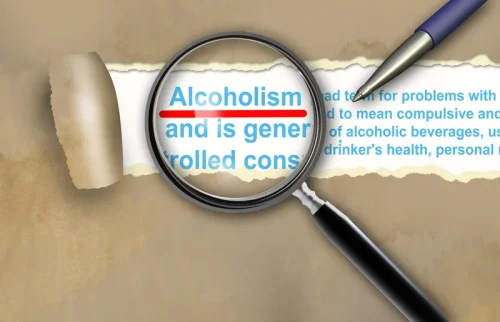
So alterations in both REM and slow wave sleep after drinking may potentially disrupt the brain’s memory processes. Daily drinking can have serious consequences for a person’s health, both in the short- and long-term. Many of the effects of drinking every day can be reversed through early intervention. This chemical reaction in the body does not mean that you are drunk or drank too much. The response means that your body does not have the chemical enzymes to break down alcohol effectively.
A drink will warm me up
This happens when your blood alcohol concentration levels return to normal. Usually, when you haven’t consumed alcohol, these hot flushes are your body’s signal to cool down. As a result, during a hangover this can cause abnormal changes to your thermoregulatory mechanisms.
Impacts brain

The longevity and severity of hangover symptoms depend on how much alcohol was consumed, how dehydrated you are, your age, and other conditions. If you drink a lot or suffer from a condition like facial flushing, you might feel very warm after a night of drinking. In some cases, you may even experience excessive sweating or hot flashes. It’s a common myth that alcohol raises your internal body temperature, but studies show it can actually lower it. Alcohol consumption affects your ability to regulate your body temperature and also dilates blood vessels, which contributes to feelings of warmth. People who experience night sweats regularly after drinking may have an issue with alcohol.
What does alcohol do to your body?
- This disruption of the stomach lining with the use of alcohol can become chronic (ongoing).
- People may sweat more after drinking due to the reasons below.
- Stress is biologically mediated by the hypothalamic pituitary adrenal axis – a feedback system between the brain and the pituitary and adrenal glands.
Alcohol’s effect on our body temperature is particularly dangerous because it tricks us into feeling warmer than we actually are. As such, we might feel the need to step outside to cool off, even if the external temperature hasn’t changed significantly. This can put us at a greater risk of hypothermia-related injuries and deaths. Excessive drinking combined with the cold can lead to hypothermia, which occurs when your body temperature drops so low that it causes a cardiac arrest. A study7 of hypothermia and alcohol poisoning in adolescents found that in winter 26.6% of the intoxicated subjects experienced mild hypothermia.


Alcohol can produce an uncomfortable flushing reaction in some people, as well as other symptoms. Alcohol can trigger hot flashes, especially https://ecosoberhouse.com/ during a hangover when the body’s temperature starts to rise. Sweating and hot flashes are signs of the body’s fight-or-flight response.
- Alcohol can produce an uncomfortable flushing reaction in some people, as well as other symptoms.
- Many people with alcohol use disorder hesitate to get treatment because they don’t recognize that they have a problem.
- Alcohol-related hot flashes can be just one of a number of other symptoms such as excessive sweating, high blood pressure and rapid heartbeat.
- You can now get weekly coaching support, anti-craving medications, handy digital tools, and more—all from an app on your smartphone.
- They often occur during the acute phase of withdrawal, which typically begins within hours to days after a person’s last drink.
Thus, drinking leads to an increased heart rate and widens blood vessels in your skin.” This tends to trigger perspiration. When these toxic byproducts remain in the body, side effects like flushed skin, nausea, vomiting, rapid heart rate, headache, does alcohol make you sweat and more can occur. Women going through menopause also experience hot flashes naturally and drinking alcohol can worsen these symptoms. When you drink alcohol, your brain cells tell your blood vessels to expand to get rid of the extra heat.
- Generally, symptoms peak when BAC hits zero, but can continue for up to 24 hours afterward.
- These serious mental and physical symptoms usually show up 2 to 4 hours after your last drink.
- Rough sleeping in extremely low temperatures over winter, combined with prevalent alcohol addiction problems, make the homeless population particularly vulnerable to hypothermia.
- Keep in mind that cutting back on alcohol isn’t good just for preventing excessive heat or sweating, but also for enhancing our overall mental and physical health as well.
Some people will feel an overall hot flush that affects their entire body. There you have it – we’ve answered the question – why does alcohol make you hot? Some people suffer from Asian flush reaction – and are incapable of properly metabolizing alcohol. As a result, their body temperature rises to uncomfortable levels. While this can be annoying and uncomfortable, it is typically not cause for concern. By delving into the science behind flushed skin and overheating, we can better understand our body’s response to alcohol consumption.

From there, it travels to your liver, where it is metabolized into acetaldehyde and then into acetate. However, hot flashes and sweating can also affect other people, since alcohol can affect the endocrine system. This system makes and secretes hormones that can contribute to these symptoms. People may not realize that because of this, they are at risk of hypothermia in cold weather. During hot weather, they may begin to experience nausea and dizziness with dehydration in addition to sweating.
- Binge drinking is also reported to be a habit of 12% of adults in the UK2.
- Furthermore, while alcohol may help us fall asleep faster, it actually reduces our overall quality of sleep and disrupts our REM cycle, which is vital for physical restoration.
- If ethanol is given over time rats show increasing “tasty” responses in their mouth and facial expressions.
- If your shakes last longer than 24 hours, or if you’re concerned that they might be a sign of withdrawal, it’s best to talk with a healthcare professional as soon as possible.
- It’s best to go through an alcohol detox with the help of skilled healthcare professionals who can help you manage the uncomfortable symptoms and potential dangers of alcohol withdrawal.
- If you choose to drink, it’s generally recommended to do so in moderation.
- If you suspect that someone has alcohol poisoning — even if you don’t see the classic symptoms — get medical help right away.
